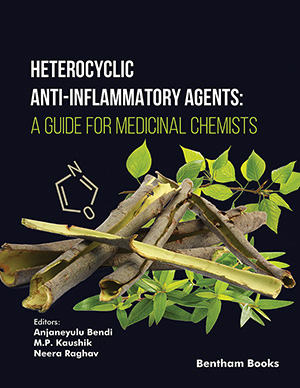Abstract
Colorectal cancer (CRC) has a high incidence and fatality rate worldwide. It ranks second concerning death worldwide. Cancer patients are diagnosed with the disease at a later stage due to the absence of early diagnostic methods, which leads to increased death. With the help of recent advancements in the fields of diagnosis and therapy, the development of novel methods using new targets could be helpful for the long-term survival of CRC patients when CRC is detected early. However, the prognosis for the advanced stage of CRC is abysmal. New biomarkers are emerging as promising alternatives since they can be utilized for early detection of CRC, are simple to use, and non-invasive. Non-coding RNAs (ncRNAs) have been seen to have an aberrant expression in the development of many malignancies, including CRC. In the past two decades, much research has been done on non-coding RNAs, which may be valuable as biomarkers and targets for antitumor therapy. Non-coding RNAs can be employed in detecting and treating CRC. Non-coding RNAs play an essential role in regulating gene expression. This article reviews ncRNAs and their expression levels in CRC patients that could be used as potential biomarkers. Various ncRNAs have been associated with CRC, such as microRNAs, long non-coding RNAs, circular RNAs, etc. The expression of these non-coding RNAs may provide insights into the stages of cancer and the prognosis of cancer patients and therefore proper precautionary measures can be taken to decrease cancer-related deaths.
[http://dx.doi.org/10.1016/S1470-2045(20)30535-0] [PMID: 33387492]
[http://dx.doi.org/10.1038/nature11252] [PMID: 22810696]
[http://dx.doi.org/10.1007/s11010-020-03867-8] [PMID: 32767228]
[http://dx.doi.org/10.3390/ijms21155311] [PMID: 32726923]
[http://dx.doi.org/10.2174/1872208312666180731104244] [PMID: 30062978]
[http://dx.doi.org/10.1016/j.bbagrm.2014.08.012] [PMID: 25159663]
[http://dx.doi.org/10.1534/genetics.112.146704] [PMID: 23463798]
[http://dx.doi.org/10.7150/ijms.28047] [PMID: 30745810]
[http://dx.doi.org/10.1038/s41580-020-00315-9] [PMID: 33353982]
[http://dx.doi.org/10.1146/annurev-biochem-051410-092902] [PMID: 22663078]
[http://dx.doi.org/10.1093/nar/gks776] [PMID: 22923516]
[http://dx.doi.org/10.1038/s41573-021-00219-z] [PMID: 34145432]
[http://dx.doi.org/10.2174/138920210793175895] [PMID: 21532838]
[http://dx.doi.org/10.1093/bib/bbs075] [PMID: 23175680]
[http://dx.doi.org/10.1038/nature12986] [PMID: 24429633]
[http://dx.doi.org/10.3389/fonc.2018.00332] [PMID: 30191143]
[http://dx.doi.org/10.1261/rna.035667.112] [PMID: 23249747]
[http://dx.doi.org/10.7150/jca.30828] [PMID: 31602252]
[http://dx.doi.org/10.1186/s13045-018-0569-5] [PMID: 29433541]
[http://dx.doi.org/10.1016/j.bbcan.2012.03.005] [PMID: 22498252]
[http://dx.doi.org/10.1038/s41598-021-88161-3] [PMID: 33888812]
[http://dx.doi.org/10.1016/j.prp.2020.152937] [PMID: 32312483]
[http://dx.doi.org/10.1146/annurev-biochem-060614-034258] [PMID: 25747396]
[http://dx.doi.org/10.1016/j.plabm.2018.e00113] [PMID: 30705933]
[http://dx.doi.org/10.1016/j.canlet.2014.10.004] [PMID: 25305452]
[http://dx.doi.org/10.1007/s13277-015-4056-0] [PMID: 26408181]
[http://dx.doi.org/10.1038/bjc.2014.383] [PMID: 25025966]
[PMID: 25031737]
[http://dx.doi.org/10.1016/j.tranon.2021.101036] [PMID: 33588137]
[http://dx.doi.org/10.1016/j.canlet.2016.03.022] [PMID: 27012187]
[http://dx.doi.org/10.1002/ijc.26170] [PMID: 21547902]
[http://dx.doi.org/10.1186/s12860-019-0188-1] [PMID: 31039730]
[http://dx.doi.org/10.18632/aging.103016] [PMID: 32248186]
[http://dx.doi.org/10.18632/oncotarget.8063] [PMID: 26989025]
[http://dx.doi.org/10.2147/CMAR.S274447] [PMID: 33376405]
[http://dx.doi.org/10.1177/1724600818777242] [PMID: 29888675]
[http://dx.doi.org/10.3389/fcell.2020.565355] [PMID: 33178684]
[http://dx.doi.org/10.1002/ctm2.211] [PMID: 33135346]
[http://dx.doi.org/10.3389/fonc.2020.604534] [PMID: 33604287]
[http://dx.doi.org/10.1038/s41467-020-15547-8] [PMID: 32358485]
[http://dx.doi.org/10.1186/s12935-021-02023-6] [PMID: 34174900]
[http://dx.doi.org/10.1002/iub.2427] [PMID: 33314669]
[http://dx.doi.org/10.1016/j.omtn.2019.06.009] [PMID: 31400607]
[http://dx.doi.org/10.1002/jcp.30004] [PMID: 32853419]
[http://dx.doi.org/10.3390/ijms19123711] [PMID: 30469518]
[http://dx.doi.org/10.1016/j.intimp.2018.06.024] [PMID: 29933193]
[PMID: 14573789]
[http://dx.doi.org/10.1177/1724600818807492] [PMID: 30854930]
[http://dx.doi.org/10.1371/journal.pone.0102017] [PMID: 25019299]
[http://dx.doi.org/10.1038/s41467-018-07810-w] [PMID: 30568162]
[http://dx.doi.org/10.1016/j.jtbi.2016.12.006] [PMID: 27993628]
[http://dx.doi.org/10.1007/s10620-013-2858-8] [PMID: 24026406]
[http://dx.doi.org/10.1159/000463387]
[http://dx.doi.org/10.1002/mc.21832] [PMID: 22121083]
[http://dx.doi.org/10.1053/j.gastro.2016.11.018] [PMID: 27876571]
[http://dx.doi.org/10.1136/gut.2011.239236] [PMID: 21930727]
[http://dx.doi.org/10.1158/1078-0432.CCR-13-1750] [PMID: 24691020]
[PMID: 23741026]
[http://dx.doi.org/10.1080/13813455.2020.1779311] [PMID: 32552060]
[http://dx.doi.org/10.7150/thno.36605] [PMID: 31754405]
[http://dx.doi.org/10.3892/or.2020.7494] [PMID: 32323786]
[http://dx.doi.org/10.1016/j.canlet.2020.02.021] [PMID: 32112903]
[http://dx.doi.org/10.1016/j.canlet.2017.11.008] [PMID: 29133238]
[http://dx.doi.org/10.18632/aging.103233] [PMID: 32413870]
[http://dx.doi.org/10.1186/s12943-019-1113-0] [PMID: 31937318]
[http://dx.doi.org/10.3389/fgene.2020.00418] [PMID: 32457800]
[http://dx.doi.org/10.2147/OTT.S204741] [PMID: 31496737]
[http://dx.doi.org/10.1186/s12943-020-01272-9] [PMID: 33225938]
[http://dx.doi.org/10.1093/carcin/bgaa140] [PMID: 33347535]
[PMID: 26884878]
[http://dx.doi.org/10.1002/cam4.3332] [PMID: 32706154]
[http://dx.doi.org/10.1186/s12935-020-01519-x] [PMID: 32908453]
[http://dx.doi.org/10.1016/j.bbrc.2018.08.152] [PMID: 30173892]
[http://dx.doi.org/10.3389/fgene.2019.01096] [PMID: 31737058]
[http://dx.doi.org/10.1038/s41419-020-2707-6] [PMID: 32681092]
[http://dx.doi.org/10.2147/OTT.S240642] [PMID: 32273712]
[http://dx.doi.org/10.1002/1878-0261.12796] [PMID: 32896063]
[http://dx.doi.org/10.1016/j.bbrc.2018.06.089] [PMID: 29928882]
[http://dx.doi.org/10.12659/MSM.915926] [PMID: 31401644]
[http://dx.doi.org/10.7150/thno.28001] [PMID: 30555542]
[http://dx.doi.org/10.1186/s12943-018-0767-3] [PMID: 29382334]
[http://dx.doi.org/10.2147/CMAR.S193266] [PMID: 31118791]
[http://dx.doi.org/10.1016/j.ebiom.2017.07.009] [PMID: 28734806]
[http://dx.doi.org/10.1136/gutjnl-2015-309359] [PMID: 26475630]






























